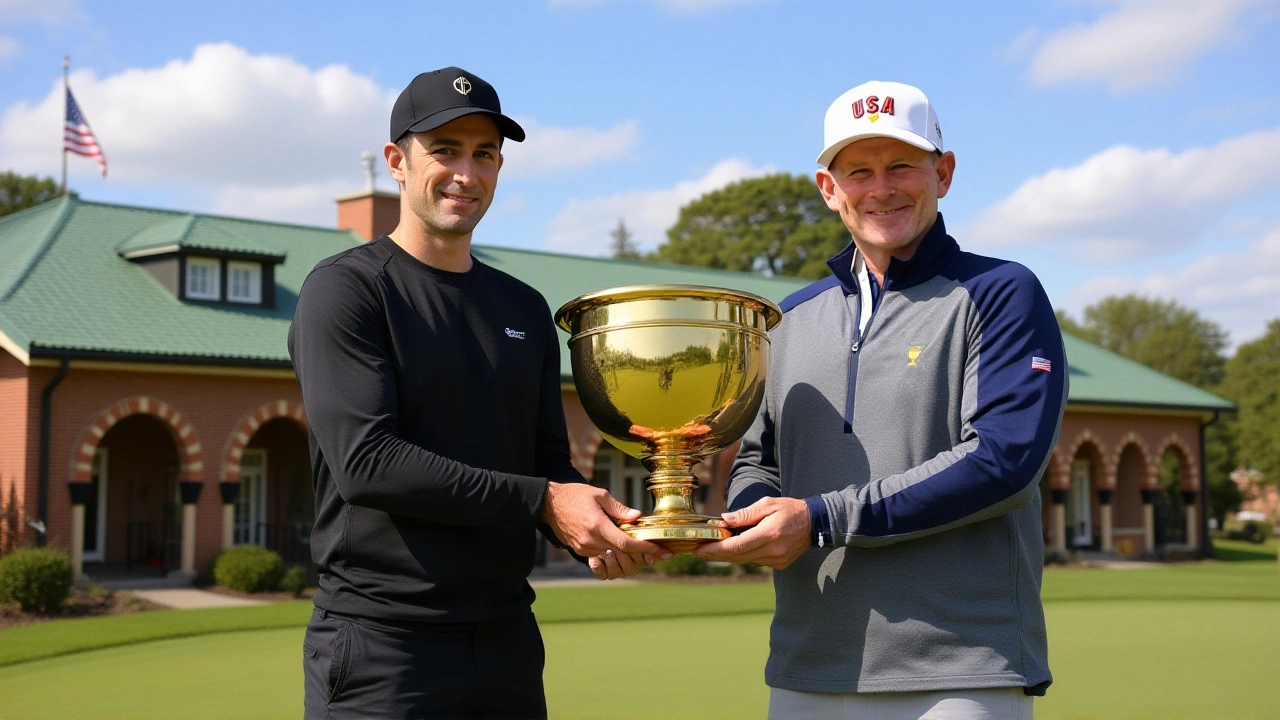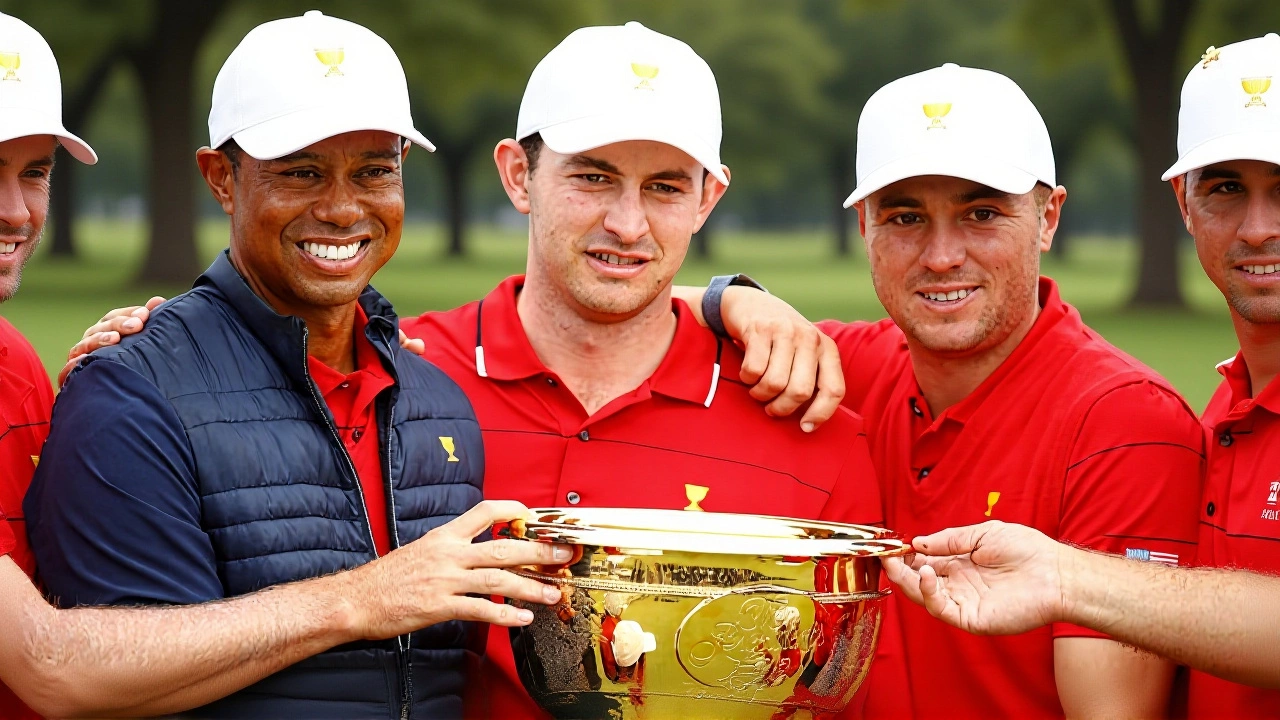When Keegan Bradley, a six‑time PGA Tour winner, was announced as the United States captain for the 2025 Ryder CupBethpage Black, the golf world collectively held its breath.
The PGA of America officially confirmed the decision on July 8, 2024 via a brief Instagram post, ending weeks of speculation after Tiger Woods publicly declined the coveted role. At 38, Bradley becomes the youngest American captain since Arnold Palmer’s playing‑captain stint in 1963.
Why this matters: The backdrop of U.S. Ryder Cup leadership
The Ryder Cup, held biennially, is golf’s most fever‑pitched team event. Over the past decade, the United States has cycled through a string of seasoned captains—Zach Johnson (2021), Jim Furyk (2023), and Davis Love III (2018)—all of whom logged at least one season as an assistant captain before taking the helm. The tradition was meant to ensure continuity, but Bradley’s appointment shatters that pattern.
Bradley’s résumé includes two Ryder Cup outings as a player (2012, 2014) with a respectable 4‑3‑0 record, but he never served in a supporting captaincy role. By contrast, Arnold Palmer’s 1963 captaincy, at just 34, set a historic precedent for youthful leadership, though Palmer also played alongside his teammates. The decision to bypass the assistant‑captain requirement has raised eyebrows among pundits and veterans alike.
The announcement and the road to it
The PGA’s selection committee had earmarked Woods as its first‑choice months ago. Negotiations allegedly revolved around the extensive promotional duties, media commitments, and the time‑intensive preparation required for a venue as demanding as Bethpage Black. Woods, who now serves as vice‑chairman of the PGA Tour Enterprises board, cited a burgeoning commercial agenda—particularly an ongoing investment dialogue with Saudi‑backed LIV Golf—as a key factor in his decision to step aside.
When Woods’ withdrawal became public, the committee accelerated its search. Bradley emerged as a compromise candidate: a charismatic winner with a clean image and a genuine affection for the Ryder Cup’s history. In a brief statement released on Monday, Bradley said, "I am incredibly honored to accept this opportunity to captain the United States Team at the 2025 Ryder Cup. My passion and appreciation for golf's greatest team event have never been stronger. I look forward to beginning preparations for 2025."
Voices from both sides of the Atlantic
Luke Donald, the European captain who retained his role after the 2023 victory at Marco Simone, praised Bradley’s enthusiasm. "He brings fresh energy and a competitive fire that America needs," Donald remarked during a post‑match interview in Rome.
On the U.S. side, PGA of America President Mike McNabb told reporters, "Keegan embodies the spirit of the competition. While his résumé isn’t typical, his commitment to team play and his respect for Ryder Cup tradition convinced us he’s the right choice."
Woods, speaking from a private press gathering, offered a measured response: "I’ve always loved the Ryder Cup. My current responsibilities with the PGA Tour and the LIV discussions demand my focus, but I’ll support Keegan and the team in any way I can."
What this shift could mean for Team USA
Bradley’s vice‑captain lineup—Webb Simpson, Brandt Snedeker, Kevin Kisner, Jim Furyk, and Gary Woodland—blends experience with fresh perspectives. Notably, Furyk, a former captain, provides a bridge to the older guard, while Simpson and Snedeker bring recent tour success. Analysts like John Woodcock of Golf Digest suggest that Bradley’s youth may translate into a more aggressive player‑selection strategy, favoring momentum‑rich golfers over veterans with dwindling form.
Conversely, critics warn that lacking assistant‑captain experience could hinder Bradley’s ability to manage the intense media spotlight that accompanies Bethpage’s notoriously unforgiving fairways. The Black Course, famed for its narrow landing zones and punitive rough, demands meticulous course‑management insight—something past captains often harvested from apprenticeship years.
Preparing for September 2025: the coming months
Bradley’s first public appearance as captain took place at a noon press conference in New York’s NASDAQ building, where he outlined a rough preparation calendar: a series of practice matches at Bethpage in early summer, a senior‑player mentorship program, and a national media tour aimed at rallying fan support.
In parallel, the European camp is solidifying its own vice‑captains—Thomas Bjørn, Alex Norén, Edoardo Molinari, José María Olazábal, and Francesco Molinari—most of whom returned from the 2023 victory. The continuity on the European side could prove decisive, especially given Luke Donald’s strategic emphasis on “team chemistry over individual rankings.”
Historical parallels and the road ahead
The Ryder Cup has long been a stage for iconic leadership moments. Arnold Palmer’s 1963 captaincy, followed by the legendary Jack Nicklaus in 1989, set a benchmark for charismatic yet strategically sound guidance. More recently, Jim Furyk’s 2023 tenure was marked by a defensive, match‑play‑centric style that fell short against Europe’s aggressive tactics.
Bradley’s appointment, therefore, represents both a nod to the past—echoing Palmer’s youthful daring—and a clear departure from the bureaucratic norm of promoting from within. Whether this gamble pays off will likely hinge on how well he can meld his modern touring experience with the nuanced, high‑pressure environment of team match play.
Looking beyond 2025: the future of U.S. Ryder Cup leadership
If Bradley’s 2025 campaign succeeds, it could signal a broader shift toward younger, more media‑savvy captains. The PGA of America may then prioritize candidates with strong personal brands and social‑media reach, mirroring trends in other sports where captaincy is as much about public engagement as on‑course tactics.
For now, the American fan base is buzzing. Social‑media chatter following the announcement showed a roughly even split between optimism for a “new era” and nostalgia for the familiar faces of past captains. The real test begins when the first tee shot rings out at Bethpage Black on September 26, 2025.

Frequently Asked Questions
Why did Tiger Woods turn down the Ryder Cup captaincy?
Woods cited his growing responsibilities as vice‑chairman of PGA Tour Enterprises and the ongoing negotiations of a multi‑billion‑dollar investment with Saudi‑backed LIV Golf. Those commitments left limited time for the extensive promotional and strategic duties required of a Ryder Cup captain.
What makes Keegan Bradley a surprising choice for captain?
Bradley has never served as an assistant captain and has only played in two Ryder Cups. The PGA of America broke with tradition by selecting a captain without the usual apprenticeship, banking on his recent tour success and fresh perspective.
How might Bradley’s youth affect team strategy?
Analysts say a younger captain could favor an aggressive, momentum‑driven lineup, prioritizing players who are peaking on tour rather than seasoned veterans whose form may be fading. This could lead to a more dynamic, but potentially riskier, match‑play approach.
What is the significance of Bethpage Black as the venue?
Bethpage Black, located in Farmingdale, New York, is notorious for its narrow fairways, deep bunkers, and punishing rough. Its reputation for testing the best players makes the 2025 edition especially demanding, putting a premium on strategic course management—a factor that will test Bradley’s leadership.
When and where will the 2025 Ryder Cup take place?
The 45th Ryder Cup is scheduled for September 26‑28, 2025, on the Black Course of Bethpage State Park in Farmingdale, New York, USA.
